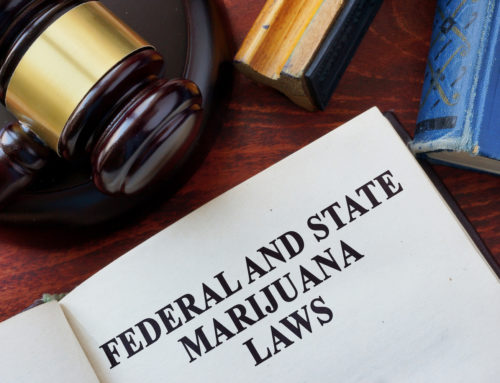 Resisting arrest in California is a serious criminal charge. In many felony and misdemeanor criminal cases in California, charges are often added when an arrestee resists arrests, interferes with a police officer or sheriff’s deputies attempt to discharge their duties or in more serious cases commits an assault and/or battery on a police officer during an arrest. Such charges are serious and can often lead to felony convictions and even state prison time. Whether your criminal charges are filed in Los Angeles Superior Court or in a more conservative county in California such as Orange or Riverside County, it is always advisable to retain and/or consult with an attorney who is familiar with all possible defense concerning an resisting arrest charge but more importantly is familiar with getting prior evidence of bad behavior of the arresting officer through a Pitchess Motion.
Resisting arrest in California is a serious criminal charge. In many felony and misdemeanor criminal cases in California, charges are often added when an arrestee resists arrests, interferes with a police officer or sheriff’s deputies attempt to discharge their duties or in more serious cases commits an assault and/or battery on a police officer during an arrest. Such charges are serious and can often lead to felony convictions and even state prison time. Whether your criminal charges are filed in Los Angeles Superior Court or in a more conservative county in California such as Orange or Riverside County, it is always advisable to retain and/or consult with an attorney who is familiar with all possible defense concerning an resisting arrest charge but more importantly is familiar with getting prior evidence of bad behavior of the arresting officer through a Pitchess Motion.
Resisting Arrest/Assault on a Police Officer
California Penal Code section 148 outlaws “resisting arrest” from certain law enforcement and other personnel. The law prohibits a person from “wilfully” resisting, delaying and/or obstructing a law enforcement officer including a police officer or sheriff deputy or and EMT (emergency medical technician) from performing or attempting to perform their duties. The duties that qualify under section 148 of the California Penal Code can include interfering with an arrest, interviewing persons that are witnesses to a crime, interfering with traveling to the scene of a crime or traffic accident and/or monitoring or interfering with a criminal suspect who is in custody.
A conviction under California Penal Code section 148 is a misdemeanor with a maximum fine of $1000.00 (which ends up being much higher after penalty assessments are added) and up to 1 year in jail.
Many times an altercation can occur or appear to occur where a police officer is touched in an effort by a suspect to protect themselves or indeed assault of the officer. Such conduct can be charged as a misdemeanor Penal Code section 148 charge or a more serious felony charge of Penal Code section 243 (battery on a police officer) which could lead to a prison sentence of up to 4 years in state prison.
Legal Defenses/Pitchess Motion
In many resisting arrest and/or assault police officer charges, an experienced criminal defense lawyer can identify viable defenses which can often times lead to a reduction or dismissal of charges. Defenses to resisting arrest or similar charges in California can include:
1. The officer was engaged in police misconduct and made an unlawful/or wrongful arrest;
2. The suspect was falsely accused by the officer; and/or
3. The suspect was acting in self-defense.
When dealing with these cases, often times an over-zealous police officer will be acting wrongfully, using excessive force or falsely accusing a criminal suspect. Evidence of an officers prior misconduct is often used by a criminal defense attorney to show a pattern by the officer to act unlawfully. In order to prove such a defense, a criminal defense lawyer will often times have to file a Pitchess Motion to get the officers file to determine if there were prior complaint against the officer for excessive force, wrongful arrests or otherwise conduct showing the officer was falsely accusing a criminal suspect.
Upon a showing of good cause, a defendant in a criminal case may obtain discovery of information from a law enforcement officers personnel file including The names, addresses, and telephone numbers of all persons who have filed complaints with The Department for acts constituting racial prejudice, dishonesty, false arrest, illegal search and seizure, any act involving morally lax character, unnecessary acts of aggressive behavior, acts of violence and/or attempted violence, acts of excessive force and/or attempted excessive force, the fabrication of charges and/or evidence by the arresting officers or deputies. In order to get this information, a California criminal defense attorney must be familiar with California Evidence Code section 1045(a) and California case law such as Pierre C. v. Superior Court (1984) 159 Cal.App.3d 1120 which explains what constitutes good cause for a Pitchess motion in order to obtain law enforcement records showing “racial prejudice, false arrest, illegal search and seizure, the fabrication of charges and/or evidence, dishonesty and improper tactics . . . .’” by an arresting officer.
Necessity for hiring competent criminal defense counsel to defend resisting arrest and related criminal charges in California
It can be a daunting proposition facing criminal charges pertaining to resisting and/or assaulting or committing a battery on a police officer since many jurors will give such law enforcement personnel more credibility than a person facing criminal charges. However, a person who retains a skilled criminal defense attorney with knowledge of defending such cases can obtain valuable information which often times can lead to the reduction or dismissal of serious criminal charges.





